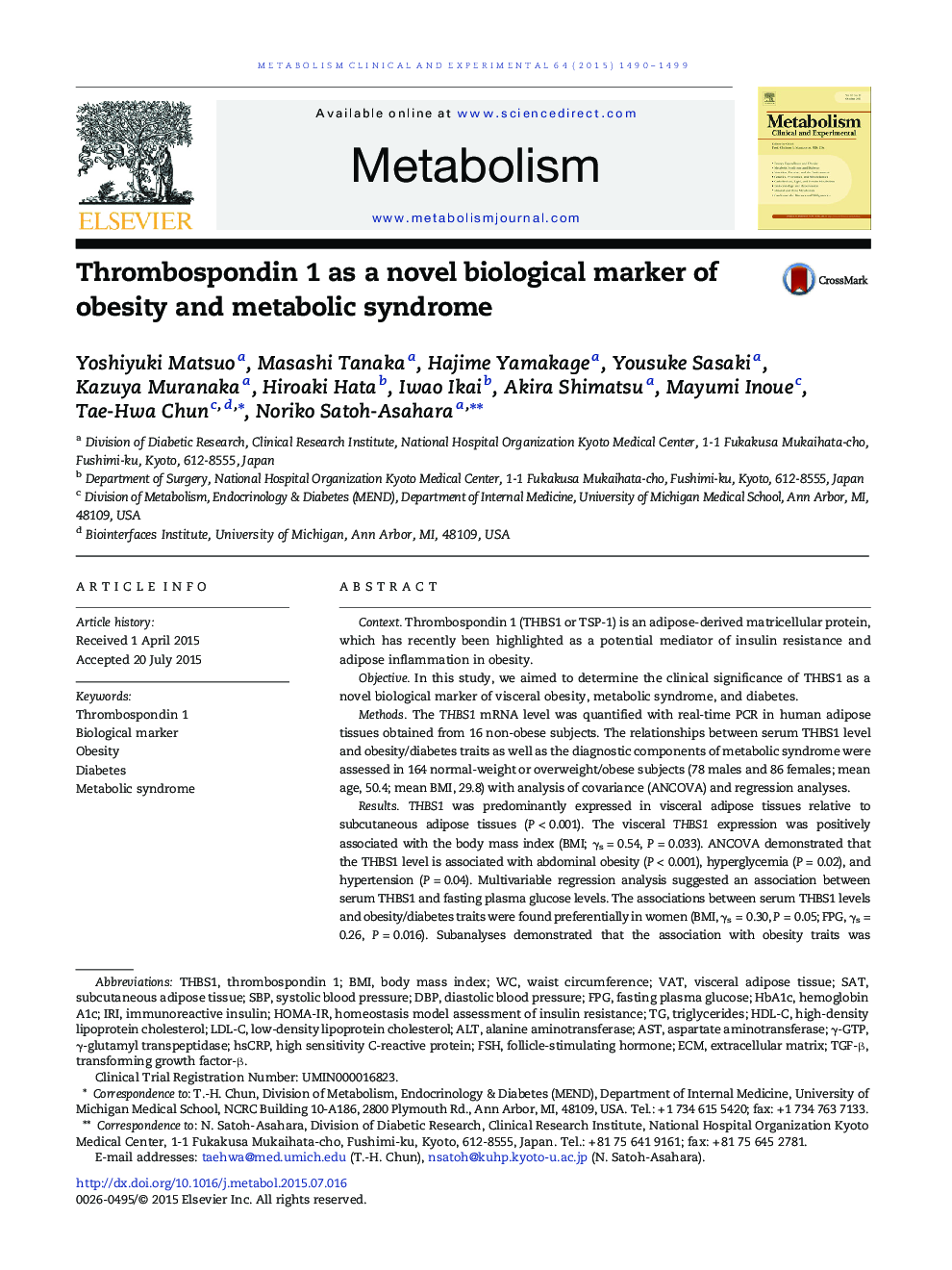| کد مقاله | کد نشریه | سال انتشار | مقاله انگلیسی | نسخه تمام متن |
|---|---|---|---|---|
| 2805374 | 1157045 | 2015 | 10 صفحه PDF | دانلود رایگان |
ContextThrombospondin 1 (THBS1 or TSP-1) is an adipose-derived matricellular protein, which has recently been highlighted as a potential mediator of insulin resistance and adipose inflammation in obesity.ObjectiveIn this study, we aimed to determine the clinical significance of THBS1 as a novel biological marker of visceral obesity, metabolic syndrome, and diabetes.MethodsThe THBS1 mRNA level was quantified with real-time PCR in human adipose tissues obtained from 16 non-obese subjects. The relationships between serum THBS1 level and obesity/diabetes traits as well as the diagnostic components of metabolic syndrome were assessed in 164 normal-weight or overweight/obese subjects (78 males and 86 females; mean age, 50.4; mean BMI, 29.8) with analysis of covariance (ANCOVA) and regression analyses.ResultsTHBS1 was predominantly expressed in visceral adipose tissues relative to subcutaneous adipose tissues (P < 0.001). The visceral THBS1 expression was positively associated with the body mass index (BMI; γs = 0.54, P = 0.033). ANCOVA demonstrated that the THBS1 level is associated with abdominal obesity (P < 0.001), hyperglycemia (P = 0.02), and hypertension (P = 0.04). Multivariable regression analysis suggested an association between serum THBS1 and fasting plasma glucose levels. The associations between serum THBS1 levels and obesity/diabetes traits were found preferentially in women (BMI, γs = 0.30, P = 0.05; FPG, γs = 0.26, P = 0.016). Subanalyses demonstrated that the association with obesity traits was predominantly found in premenopausal women (BMI, γs = 0.41, P = 0.007), whereas the association with diabetes traits was predominant in postmenopausal women (HbA1c, γs = 0.38, P = 0.01). During medical weight reduction treatment, the change in the serum THBS1 level was associated with the change in BMI and HbA1c in pre- and postmenopausal women, respectively.ConclusionsSerum THBS1 is a useful biological marker of obesity and metabolic syndrome in Japanese subjects, particularly in women. THBS1 may act as a critical circulating factor that couples obesity with metabolic syndrome and diabetes in humans.
Journal: Metabolism - Volume 64, Issue 11, November 2015, Pages 1490–1499
